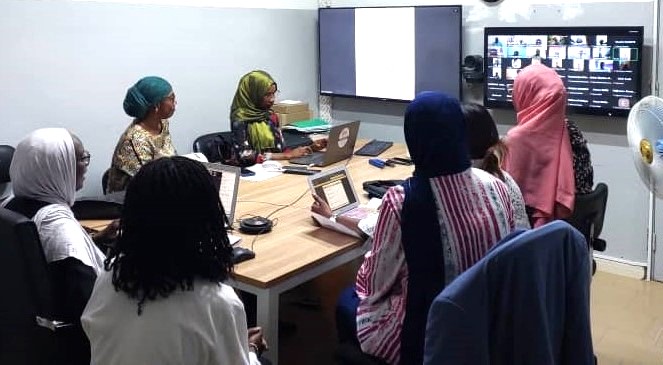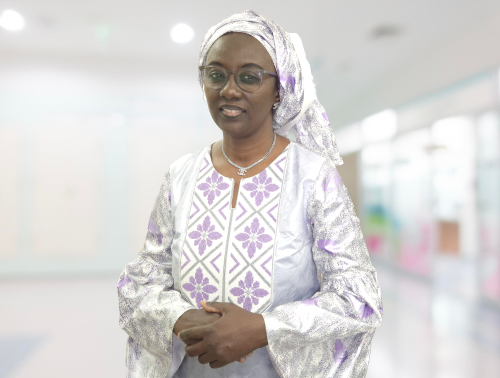But times are changing and Diop-Ndiaye has been a catalyst; the university reached an important milestone last year when Professor Fatou Samba Ndiaye, head of the clinical hematology department at Dalal Jam Hospital, was elected Vice Dean of Medicine
“Professors have reached the highest education levels and they are role models,” Diop-Ndiaye says. “Women in particular need to be role models for the younger students. If the professors do not want to touch the sky, then their students will not know how to reach that high.”
Diop-Ndiaye has been part of the effort to build workforce capacity and increase the standing of women at the university. She organized an ECHO series on careers and leadership that was very well attended. The sessions met twice a month for six months, and covered topics that many women have not had time to focus on due to their roles at the university and at home. This critically important sector needed to grow.
ECHO’s Flexibility Expanded the Program’s Reach
The concept for an ECHO focused on leadership skills and tailored for women came from a professional development seminar, sponsored by the World Health Organization, that was developed for women in clinical laboratory settings. In 2024, Diop-Ndiaye worked with professional development coach Maimouna Diop to produce the sessions, featuring women in academic fields who had previously been reluctant to talk about themselves and their struggles.
The ECHO Model provided the flexibility needed by both the presenters and the audiences, all of whom were juggling their work and home responsibilities.
“The community was created because everyone needs to be empowered in leadership,” says Diop-Ndiaye. “They need to motivate other people, to boost more women colleagues to be elected in higher positions, and it starts at the universities.”
The series was so successful that they broadened the scope, from health care workers in the university setting to women in the health and science fields broadly. Even though the sessions were developed specifically for women—and the career barriers that they face—men were just as interested in attending as women because much of the material that was covered on careers and leadership skills held relevance for them. With about 70 people attending each session, 40% were men. Professor Diop-Ndiaye and Coach Diop realized that these sessions could help men better understand the paths that women travel.
Immediate Impacts, Long-Term Effects
The election for Vice Dean at the end of 2024 showed how far Diop-Ndiaye and the Cheikh Anta Diop University had traveled. For the first time, women were vying for the highest position in the medical school. More women participated and voted, and the results encouraged them to tackle inequities in global systems of health care and economic development.
“It’s not easy for women to reach certain positions,” says Diop-Ndiaye. “Providing leadership skills and mentors—through ECHO—has helped move us forward.”
For more information about the Gender Equity and Leadership ECHO program, visit the iECHO page or watch the sessions on YouTube.
Featured Image: An ECHO session, part of the Gender Equity and Leadership program, in July 2024. Photo Credit: Alphonse Konan Assouman for Project ECHO.


